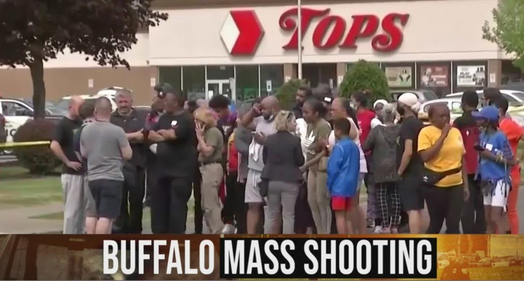Photos: YouTube\Twitter
(WASHINGTON, D.C., 5/23/22) – Council on American-Islamic Relations (CAIR), the nation’s largest Muslim civil rights and advocacy organization, today welcomed the U.S. Department of Justice’s newly-announced initiatives to address, prevent and report on hate crimes and hate incidents.
While welcoming these new initiatives, CAIR renewed its call for the Biden administration and Congress to make all aid, grants, training, or other assistance to state and local law enforcement agencies contingent on their reporting and compiling of hate crime data.
The new round of DOJ initiatives meant to address, prevent, and better report on hate crimes are mandated in part by the congressional adopted COVID-19 Hate Crimes and Khalid Jabara-Heather Heyer NO HATE Acts, and a response to Attorney General Merrick Garland’s memorandum on improving the DOJ’s efforts to combat hate crimes and hate incidents.
New DOJ initiatives include:
- Issuing new guidance with the Department of Health and Human Services (HHS) aimed at raising awareness of hate crimes during the COVID-19 pandemic;
- Ensuring that all states have now become certified for participation in the FBI Uniform Crime Reporting National Incident Based Reporting System; and,
- Launching an FBI-led National Anti-Hate Crimes Campaign involving all 56 FBI field offices to encourage reporting. The campaign includes outdoor advertising, billboards, and radio streaming in addition to social media; and,
- Releasing grant solicitations for programs to create state-run hate crime reporting hotlines and to support community-based approaches to prevent and address hate crimes.
The announcement of these new initiatives came less than a week after the racially-motivated mass killing at a supermarket in Buffalo, N.Y., carried out by an avowed white supremacist gunman.

In a statement, CAIR Government Affairs Director Robert S. McCaw said:
“At a time when the FBI is tracking the highest number of hate crimes despite decreasing participation in reporting from state and local law enforcement, we welcome the DOJ’s new initiatives meant to address, prevent and better report on hate crimes.
“Just as it is important for the DOJ to work toward certifying all states to participating in the FBI’s national incident reporting program – full participation will not occur until the Biden administration and Congress tie all aid, grants, training, and assistance to their reporting and compiling of hate crime data.
“Combating the rising tide of hate means local law enforcement agencies must submit regular and complete data regarding hate crime incidents targeting minority communities.”
In March, an investigative report by Axios found that the “number of police agencies participating in the FBI’s hate crimes report declined in 2020 — the third straight year of decreases. About 88% of cities don’t report hate crimes data.”
Axios: DOJ: More police departments declining to report hate crimes
However, the FBI’s annual hate crime statistics report last year documented more than 7,700 hate crime incidents in 2020, about 450 more than were reported in 2019, the highest number of reported hate crime incidents since 2008.
Axios analysis of data also found that: “More than 12,000 law enforcement agencies reported zero hate crimes FBI numbers showed. The list includes police departments in Miami, Little Rock, Arkansas, and Huntsville, Alabama,” and that, “Just a handful of cities and towns in states like Alabama, Arkansas, and Florida bothered to report hate crimes in 2020.”
Background:
In May 2021, Congress passed, and President Biden signed into law the Covid-19 Hate Crimes Act, which included provisions that directed the Department of Justice to expedite the review of COVID-19 related hate crimes. In the past two years, there has been a rise in anti-Asian hate crimes during the pandemic.
The act also included Jabara-Heyer NO HATE Act, which incentives but does not mandate state and local law enforcement reporting of hate crime incidents.
According to the FBI’s 2020 hate crime statistics report, attacks targeting Black people rose to 2,755 from 1,930 last year, and attacks on Asian-Americans rose to 271 from 164. According to the report, 62 percent of victims were targeted because of their race or ethnicity, and 13 percent were targeted because of their religion.
Because law enforcement agencies are not required to submit their data to the FBI for its annual report, the recently released statistics are likely an undercount. More than 3,000 of the nation’s 18,000 law enforcement agencies did not submit their 2020 statistics to the FBI.
SEE: Hate Crime Reports in US surge to the Highest Level in 12 years, FBI says









